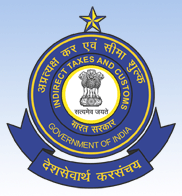|
Bhopal
Bhopal, the
capital city of Madhya Pradesh, is a fascinating amalgam of scenic beauty, old
historic city and modern urban planning. It is the 11th century city
then known as bhojpal, founded by Raja Bhoj, but the present city was established
by an Afghan soldier, Dost Mohammed (1707 1740), a general of Aurengzeb.
The
two lakes of Bhopal still dominate the city, and are indeed its nucles,
Bordered along their shores stand silent sentinels that testify to the growth
of the city. Bhopal today presents a multi-faceted profile; the old city with
its markets and fine old mosques and palaces still bear the aristocratic
imprint of its former rulers and among then the succession of powerful Begums
who ruled Bhopal from 1819 to 1926. Equally impressive is the new city with its
verdant and exquisitely laid out parks and gardens, broad avenues and
streamlined modern edifices. It is greener and cleaner than most cities in the
country.
Taj-ul-Masjid
is the largest mosque in the country. The building of this mosque was begun by
Shah Jehan Begum (188-1901) but was incomplete on her death and was completed
only after 1971. The most impressive features of the mosque are its main hall
with inter-arched roof, board facade, spacious courtyard, and smooth marble
flooring.
Bharat
Bhawan (daily expect Monday) is one of the most unique national institutes in
India. This is a centre for the performing and visual arts. The renowned
architect Goan Charles Correa designed Bharat Bhawan. There is a museum of the
arts, an art gallery, a workshop for fine arts, a reparatory theatre, indoor
and outdoor auditoria, rehearsal room and libraries of Indian poetry, classical
and folk music.
Museum
of Man (daily except Monday) is an open air exhibition of tribal house types
located on Shamla Hills. The exhibition highlights the architectural features
and has elaborately displayed interiors. The surroundings have been
reconstructed to match some of the interesting environmental features of tribal
villages. One can visit the zoo next door. Bhopal s two main shopping areas are
the new market area in the New Bhopal and the old market at Chowk in the old
Bhopal. Jari made shoulder bags are a specialty of Bhopal.
About
45 kms northeast from Bhopal is the Buddhist s city of Sanchi. After being
accidentally discovered by a British army officer in 1818, the city was
restored to its glory by 1919 and since then it
has been one of the most sacred Buddhist s sites in world. Around the
Great Stupa built by Ashoka during third century BC, lies a complex of ruined
temples and monasteries. One can also visit Vidisha about 10 kms from Sanchi,
the targets town of the area in 2nd-3rd century BC. | 






